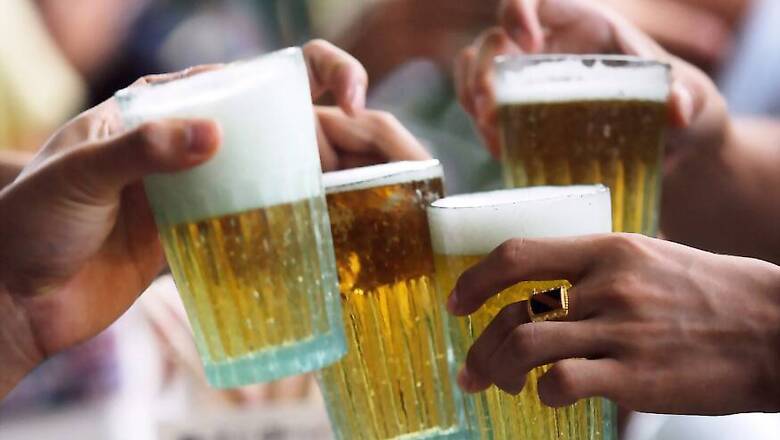
views
 Drunkards drink, out of a hundred reasons. Teetotalers stay dry, finding their own. You cannot blame one, for both parties have always been ingenious in finding excuses.
Drunkards drink, out of a hundred reasons. Teetotalers stay dry, finding their own. You cannot blame one, for both parties have always been ingenious in finding excuses.
Or else why did a poet like William Wordsworth wax melancholically and write a poem like this!
“O temperate bard
One afternoon, the first time I set foot
In this thy innovent nest and oratory,
Seated with others in a festive ring
Of commonplace convention, to thy memory drank
Within my private thoughts, till my brain reeled.”
What did he do?
The man desecrated the dwelling place of one of the greatest poets of English literature, John Milton, when he was young. But how! Before we go into that, let us see what the scene was like living in the Romantic age.
Bliss was in that dawn to be alive (19th century; as a drunkard); to be a poet was very heaven.
As revolution toppled the regime in France, and the air was resonating with the slogan - Liberty, Equality and Fraternity - irreverence was celebrated as a virtue all over the continent. Alcohol, in all forms and expressions, became a perfect tool of democracy to express it. Poets became, as Shelley pronounced it, the unacknowledged legislators of the world overnight.
So in those days, a Parisian artist might drink Sotch whisky and see himself merrily abandoned and heather-covered, ambling along the moors of Scotland, while an English poet felt himself blissful as the “warm, blushing south,” that gurgled out from the Provence satiated his thirst and fired his imagination.
Where drinks failed, other drugs came in handy to work as the poetic muse. One of the greatest fragment poems in English, ‘Kubla Khan’ was born out of an opium stupor of the poet Coleridge.
Even the earlier writers who had influenced the Romantic poets were also steeped in alcohol. When they sang aloud in their poetry about the drinks they took, with caution thrown to the wind, they had little idea about those dozens of young poets emerging behind them eager to imbibe from the very cups of inspiration they left behind. Take Robert Burns, one of the greatest Scottish poets. He made a religion out of his country’s whiskies and ales in his poetry.
Years later, William Wordsworth set out to Scotland in a literary pilgrimage to see the tomb of his mentor. But the young poet, quite strangely, was careful not to include in his itinerary another place Burns frequented - the bar at the Globe Inn in Dumfries.
Need not have to raise your brows. Wordsworth had a reason.
When he was young Wordsworth had visited one of the places frequented by the great poet John Milton. And he drank heavily with his friends from Milton’s room. Later when sense arrived, Wordsworth repented bitterly for desecrating the innocent nest of the great poet. He could never forgive himself for what he had done.
The incident made him one of the rare specimen among his species, the Romantic poets - a teetotaller.
For Wordsworth, nature had everything to intoxicate the spirit of a human being.
(Manu Remakant is a freelance writer who also runs a video blog - A Cup of Kavitha - introducing world poetry to Malayalees. Views expressed here are personal)




















Comments
0 comment